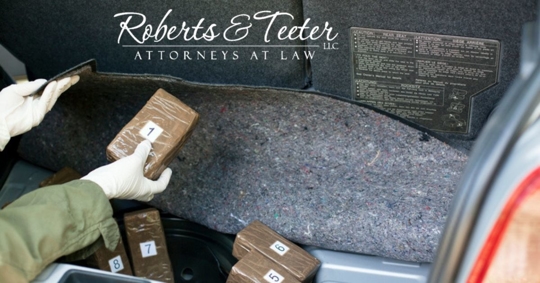Getting caught up in a drug conspiracy investigation can feel like stepping into a legal maze. Even if you weren’t caught with drugs in your possession, being accused of planning or agreeing to be part of a drug-related scheme can carry serious consequences. For many people, these charges come as a shock. They may feel like they’re being punished for associations or conversations rather than actions. But that’s exactly why conspiracy laws are so powerful, and why understanding them is essential when facing charges.
What Drug Conspiracy Really Means
The Legal Definition
In the eyes of the law, a drug conspiracy exists whenever two or more people agree to break narcotics laws. This charge is unique because prosecutors don’t need to prove that the crime happened—just that an agreement existed.
That means you could be facing serious charges even if no drugs ever changed hands. Prosecutors view this kind of “planning” as dangerous because it often involves multiple people working together, which raises the stakes.
This broad scope also makes it easier for prosecutors to bring in people who had limited involvement or were simply connected to the wrong group at the wrong time.
Key Elements Prosecutors Must Prove
For a conviction, the prosecution has to show two things:
- There was an agreement to commit a drug-related crime.
- Everyone involved understood and intended to carry it out.
- One of the members committed ab overt act to further the plan.
This doesn’t require signed contracts or recorded deals. Even casual conversations or implied agreements may be used to establish conspiracy. Evidence like messages, calls, or surveillance often becomes the backbone of their case.
These broad definitions are why conspiracy charges can feel overwhelming. Prosecutors focus on the group’s intent rather than individual actions, which makes a solid defense strategy crucial.
How Prosecutors Build Their Case
Circumstantial Evidence
In conspiracy trials, prosecutors rely heavily on circumstantial evidence, such as phone records, bank deposits, or travel patterns.
While none of these details prove guilt on their own, they’re often used to paint a picture for jurors, making them think your involvement is obvious, even if it’s not.
Testimony from Co-Conspirators
Prosecutors also frequently use testimony from people involved in the conspiracy. In exchange for lighter sentences, co-conspirators may testify against you.
This type of evidence can be powerful, but it’s not always reliable. Witnesses might be motivated by self-preservation or personal grudges, which is why these testimonies are one of the first things defense attorneys challenge.
Building a Defense
Your Legal Rights
If you’re accused of conspiracy, the most important thing you can do is understand and protect your rights. You have the right to remain silent and avoid self-incrimination. You also have the right to an attorney who can guide you through the process, challenge evidence, and make sure you’re not pressured into a bad plea deal.
These protections are more than formalities—they’re your lifeline in a high-stakes case.
Defense Strategies
Strong defenses often focus on poking holes in the prosecution’s narrative. Your attorney might argue that there was no valid agreement, that your actions were misunderstood, or that you withdrew from any alleged plan before crimes were committed.
Negotiating plea deals is also an option, especially if it minimizes penalties and avoids trial. Every decision should be carefully weighed with your lawyer’s guidance.
The Consequences of a Conviction
Drug conspiracy charges are serious and can lead to significant prison time, fines, and other long-term effects. Federal cases can be rigorous, and sentencing guidelines may feel unforgiving.
Courts consider factors like the size of the alleged conspiracy, your role, and any past charges, all of which can influence the outcome.
Even after serving time, a conviction can create ongoing challenges. Finding work, securing housing, and rebuilding personal relationships may take extra effort. While these consequences can be difficult, understanding them early helps you plan for the future and move forward more confidently.
Understanding the Legal Process
Federal vs. State Cases
Whether your case is in state or federal court will significantly impact the outcome. Federal cases often involve larger drug quantities and carry harsher penalties, so it’s critical to have a defense that’s prepared for both systems.
Contact Roberts & Teeter, LLC for Help
Being accused of a drug conspiracy doesn’t make you guilty, but the law doesn’t always make that clear. These charges are complex, intimidating, and carry life-altering consequences if not handled correctly. If you’re facing drug conspiracy allegations, Roberts & Teeter, LLC is ready to protect your rights, challenge the evidence, and fight for your future.
Call (732) 607-5553 today for a confidential consultation and build a strong defense.

